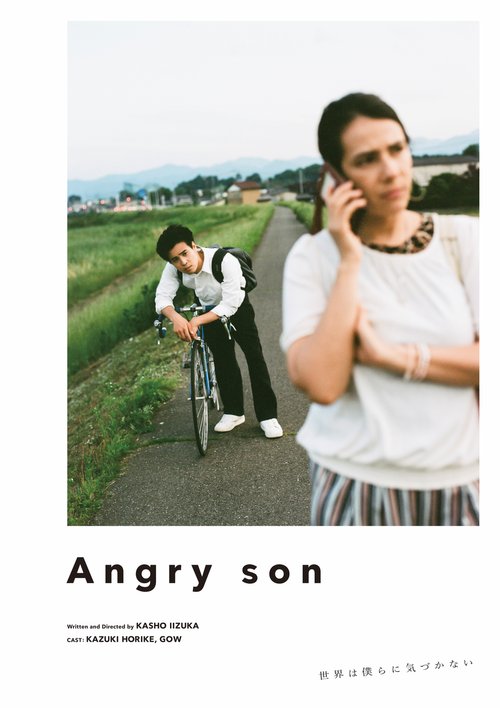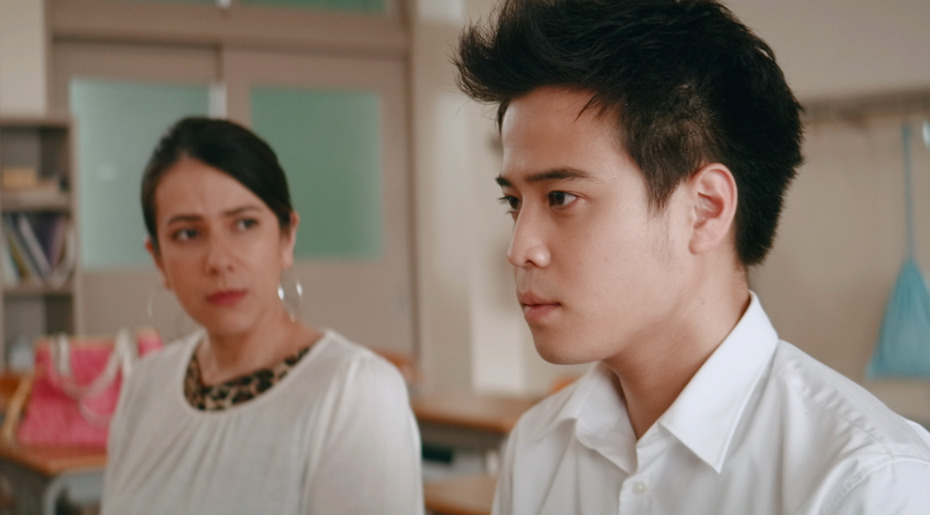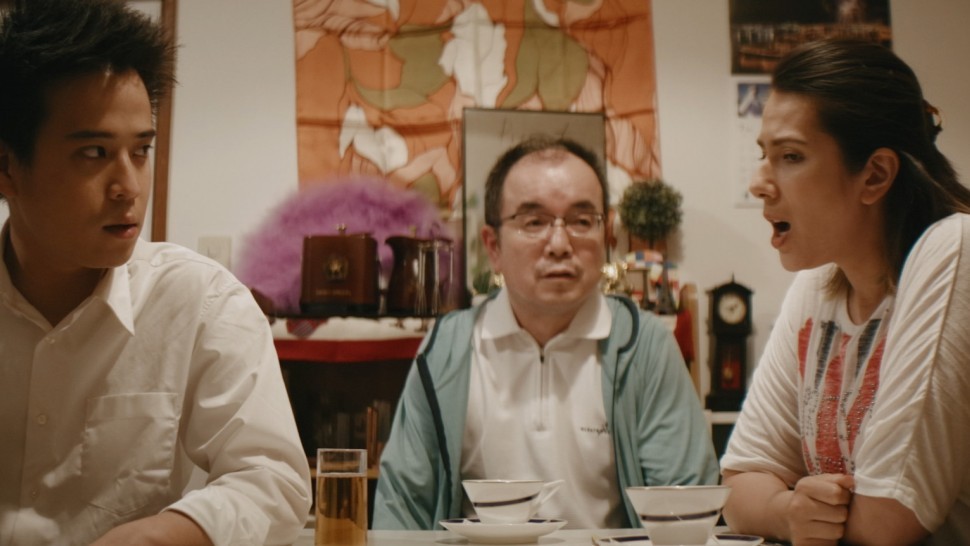
Angry Son — the closing film of the 2023 edition of the Chicago Japan Film Collective — focuses on the struggles of adolescence and of fitting in when you feel “different.” Although homosexuality and being biracial should be features intrinsic to our modern society, they are still objects of discrimination and bullying worldwide.
Director Kasho Iizuka, confronts this issue, with might and main, through a very authentic story about a high school student in Ota City within the Gunma Prefecture. Jungo (Kazuki Horike), has a Filipino mother, Reina Watanabe (Maria Theresa Gow), who works at a hostess bar. He knows little about his father, except for the monthly child support payments. His classmates call him “Jappino,” and constantly pick on him. The only one who shows true concern for Jungo is his boyfriend Yusuke Kaneko (Masafumi Shinohara), whose entire family wholeheartedly supports their relationship. But Jungo is not used to this kind of love and will take some time before fully accepting he is worthy of it. Meanwhile, he is disoriented by his mother’s decision to marry her new boyfriend, Mr. Morishita. Unwilling to live with a stranger, Jungo decides to search for his biological father, which will lead him to reconsider those who are present in his life.

The film explores sexuality in a soulful way, focusing on identity rather than its physical expression. In fact, there is a very touching friendship that blossoms between Yusuke — and eventually also involves Jungo — and a girl called Mina who confides she is asexual and yet aspires to becoming a mother one day. This sheds a light on another portion of the LGBTQIA+ community that often gets ignored, which apparently represents about one percent of the population. Asexuality is currently getting more attention from a growing body of sociological and psychological research.
Angry Son denounces not only discrimination towards all those whose sexual orientations differ from cisgender heterosexuality, but also how the Filipino in Japan — that represent its fourth-largest foreign group — are still subject to abuse. It also shows how this expat community strives to send part of its earnings to family members who are still living in the Philippines. The culture clash emerges during the arguments between mother and son, since Reina was brought up with a Filipino culture as opposed to Jungo who was raised in Japan. In these regards, the character construction is exquisite, since there is also a child-parent reversal, where often it is Jungo who takes care of his mother, reminding her to pay the bills, waking her up in the morning and protecting her from men.

As a transgender filmmaker, Kasho Iizuka, projects an authentic sensitivity in the way he tackles the diversity debate. As a matter of fact, Jungo’s temper tantrums and rage with life are beyond juvenile fury: he has to confront more battles than the typical adolescent. But it all turns out for the best, through a happy ending that is an uplifting catharsis, once the coming-of-age ordeal is traversed and all the hurdles are successfully overcome.
Angry Son further and profoundly demonstrates how humans often end up self-sabotaging their potential happiness, since Jungo initially doesn’t feel ready for a commitment with the sweet and endearing Yusuke. As Stephen Chbosky — author of the novel-turned-into-film The Perks of Being a Wallflower — wrote: “We accept the love we think we deserve,” which his exactly what Jungo experiences. He grew up feeling rejected by his biological father, and with a mother whose self-protective, harsh attitude made him feel unloved, on top of it his classmates bullied him for his mixed family background. The warm welcome of the Kaneko family felt alien to him, until he eventually understood he deserved it.
With this motion picture, Kasho Iizuka shares a universal message that encourages to value ourselves, in order for others to do the same, no matter what personal baggage we are carrying.
Final Grade: B

